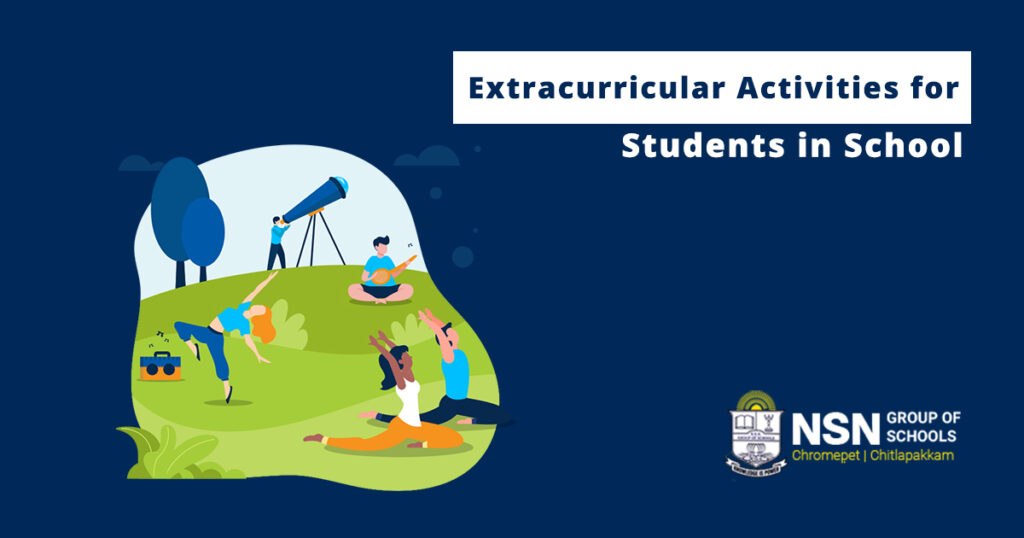
Extracurricular activities were formerly the only source of enjoyment. There were no high-tech gadgets like expensive LED television, cellphones, laptops, or PCs. Unfortunately, because of our increasingly sedentary lifestyles, extracurricular activities for students are gradually taking second place. The trend is problematic since sedentary lifestyles may have serious and negative effects on physical and mental wellbeing. Extracurricular activities educate kids to learn to be sociable in a variety of contexts, which will benefit them later when they enter professional life.
Let’s take a look at some of the most demanding yet entertaining extracurricular activities for students in school.
Scouts And Guides Group
The Scouts’ overall goal is to assist children in achieving their maximum physical, cognitive, psychological, social, and intellectual potential as individuals, as responsible Indians, and as representatives of their regional, national, and worldwide communities. Scouting uses recreation to assist in reaching its goal of shaping children physically, academically, socially, and emotionally. It includes developing a feeling of confidence, self-esteem, gaining essential skills, management skills, collaboration, experiences, education, and communication skills. Scouts are taught a variety of skills to help them live a more fulfilling life. Scouts complete a variety of chores in order to improve their abilities and overall strength.
English And Maths Club
The English Club strives to instill a love of language in students and to improve literary abilities such as drama, public speaking, debate, and reading. Drama must be prioritized by the Club since it is an important aspect of skill development. Students should participate actively in theatre classes since it helps them acquire confidence and enhances their voice modulation, body posture, and pronunciation. The goal of the Math Club is to help children realize how mathematics pervades the world surrounding them. This increases students’ confidence in utilizing mathematics to diagnose and resolve issues in both classroom and real-life circumstances. It also assists students in discovering and appreciating the incredible beauty of maths. It will also help to get a thorough understanding of the complexities of Maths.

Junior Red Cross (JRC)
The Junior Red Cross in schools encourages Good Samaritans, people who, by their grand visions and unselfish devotion, radiate infinite love to the entire globe. The Red Cross gives a platform for students to influence others through charity and to desire to make a difference and develop society. The Red Cross students eagerly participate in a multitude of events and seize every chance to provide unselfish service.
Environmental and Sustainability Clubs
Environmental and Sustainability Clubs teach students to be “One with Nature”. The students must be encouraged to water the plants on the school campus. Every child must be appropriately molded with moral values and taught the importance of the environment in order to become a better individual. Children must be nurtured from an early age to feel compassion, kindness, and affection for all species so that these values become deeply ingrained in their minds and these types of clubs teach students far more things about harmony with nature than academics. These clubs contribute to raising the next generation of ethical, productive members of society who will be valuable assets to the motherland.
Quiz & Fine Arts Clubs
A Quiz is a knowledge assessment, it is a contest between people or teams, as a kind of enjoyment, sometimes known as a Mind Sport. Having regular quizzes and assessments stimulates students to study while decreasing procrastination. It also assists in team building by encouraging conversation, creating group unity, and assisting in the development of the student’s personal qualities. Quizzing also enhances metacognitive monitoring, allowing them to forecast their learning and be more sure about what they understand. Art clubs give non-academic inspiration, aesthetic awareness, cultural awareness, innovation, and so on to students. Fine Arts Club respects and discovers the latent abilities, talents, and spirit of the kids.

Science Clubs
Science necessitates a great deal of interaction with others. It teaches kids patience and endurance. Science is an excellent topic for supplementing a child’s inherent interest. Science is a methodical endeavor that generates, constructs, and organizes knowledge in the form of verifiable hypotheses about the cosmos. The Galileo Science Club at NSN Schools has effectively stimulated and enhanced the kids’ scientific capabilities.
Physical Education
Physical education must be included in the extracurricular activities for students in school. It empowers children to enjoy and achieve a wide range of physical activities. They learn a broad range of skills and abilities, as well as the capacity to successfully apply tactics, methods, and creative concepts. When they perform, they consider what they are doing, analyze the circumstance, and make judgments. They also evaluate their personal and others’ achievements and look for methods to enhance them. As a result, children will have the confidence to participate in a wide range of physical activities and recognize the significance of leading a balanced, active lifestyle.
Conclusion
Students can acquire the qualities of collaboration, interpersonal and collective responsibilities, physiological strength and stamina, competitiveness, tolerance, and a feeling of culture and community via extracurricular activities. The best schools use extracurricular activities to serve as a conduit for reinforcing classroom learning, allowing students to apply academic abilities in a real-world setting, and are therefore considered part of holistic education.
